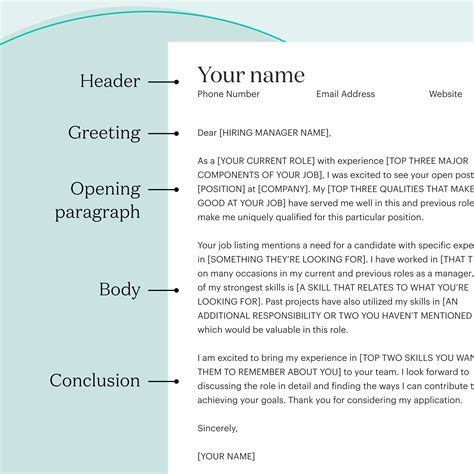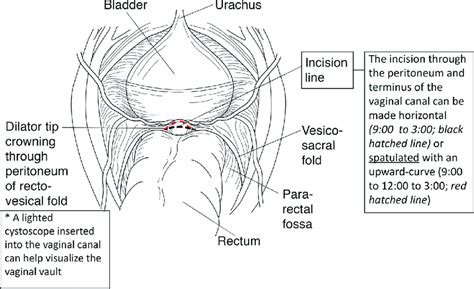Tips Of Writing A Cover Letter

Writing a compelling cover letter is an essential step in the job application process. It provides an opportunity to introduce yourself, showcase your skills and qualifications, and make a positive first impression on potential employers. With a well-crafted cover letter, you can highlight your unique value and increase your chances of securing an interview. In this article, we will delve into the art of writing an effective cover letter, offering practical tips and strategies to help you stand out from the competition.
Understanding the Purpose of a Cover Letter

A cover letter serves as a personalized introduction to your professional profile. It complements your resume by providing a more detailed narrative of your experiences, motivations, and aspirations. While a resume presents a concise overview of your work history and qualifications, a cover letter allows you to explain the context, highlight specific achievements, and demonstrate your enthusiasm for the role.
By writing a tailored cover letter for each job application, you can address the unique requirements and challenges of the position. It shows your dedication and interest in the specific opportunity, rather than submitting a generic letter that fails to capture the employer's attention.
Researching the Company and Role

Before crafting your cover letter, take the time to thoroughly research the company and the role you are applying for. Understanding the company’s mission, values, recent achievements, and future goals will enable you to align your skills and experiences with their needs. Visit their website, explore industry publications, and connect with professionals in your network who may have insights into the organization.
Additionally, analyze the job description carefully. Identify the key responsibilities, qualifications, and skills mentioned in the posting. Highlight the aspects that match your own expertise and experiences. By demonstrating a clear understanding of the role's expectations, you can tailor your cover letter to address these specific requirements.
Key Takeaway: Researching the company and role allows you to showcase how your skills and experiences align with their needs, making your cover letter more compelling.
Structuring Your Cover Letter
A well-structured cover letter follows a logical flow, making it easy for hiring managers to navigate and understand your message. Here’s a suggested structure to follow:
Introduction
Begin your cover letter with a strong opening that captures the reader's attention. Introduce yourself and express your enthusiasm for the role. Briefly mention how you learned about the opportunity and why you are interested in the company.
Body Paragraphs
- In the body of your cover letter, focus on highlighting your relevant skills, experiences, and accomplishments. Use specific examples to illustrate how you have successfully contributed to previous roles or projects.
- Address the key qualifications mentioned in the job description and provide evidence of how you meet or exceed those requirements. For instance, if the role requires strong communication skills, describe a situation where your effective communication led to a positive outcome.
- Consider adding a personal anecdote or story that showcases your unique qualities or how you overcame a challenge. This adds a human touch to your application and helps you stand out.
Conclusion
In the closing paragraph, reiterate your interest in the position and express your enthusiasm for contributing to the company's success. End with a strong call to action, such as inviting the hiring manager to contact you for further discussion.
Key Takeaway: A well-structured cover letter guides the reader through your experiences and qualifications, making it easier for them to recognize your value as a candidate.
Using Keywords and Power Words
Incorporating relevant keywords and power words into your cover letter can enhance its impact and ensure it stands out in the hiring process. Keywords are specific terms or phrases that hiring managers often use to describe the skills and qualifications they seek in candidates.
Review the job description and identify the keywords related to the role's requirements. Use these keywords naturally throughout your cover letter, especially in the body paragraphs where you describe your skills and experiences. This helps hiring managers quickly identify your alignment with the position.
Additionally, consider using power words that convey confidence, enthusiasm, and a positive attitude. Words like "innovative," "proactive," "strategic," and "collaborative" can help emphasize your strengths and leave a lasting impression.
Key Takeaway: Strategically using keywords and power words in your cover letter increases the likelihood of your application being noticed and considered by hiring managers.
Tailoring Your Cover Letter

One of the most crucial aspects of writing an effective cover letter is tailoring it to each specific job opportunity. Avoid using a generic cover letter that you send out to multiple employers. Instead, customize your letter to highlight how your skills and experiences align with the unique requirements of the role and company.
Review the job description and identify the key responsibilities, qualifications, and challenges mentioned. Address these directly in your cover letter, demonstrating how your background and expertise make you an ideal fit for the position. Show that you have a deep understanding of the company's needs and how you can contribute to their success.
Key Takeaway: Tailoring your cover letter to each job application demonstrates your dedication and increases your chances of being considered for the role.
Proofreading and Editing
Before submitting your cover letter, take the time to proofread and edit it carefully. Grammatical errors, typos, and formatting inconsistencies can detract from the professionalism of your application. Read your letter aloud to ensure it flows smoothly and makes sense.
Consider asking a friend, mentor, or career counselor to review your cover letter for feedback. Fresh eyes can often catch mistakes or suggest improvements that you may have overlooked. Make sure your letter is free of any errors that could undermine your credibility.
Key Takeaway: A well-edited cover letter presents a polished and professional image, increasing your chances of making a positive impression on hiring managers.
Additional Tips and Strategies
- Keep your cover letter concise and focused. Aim for a length of one page, ensuring it is easy to read and digest.
- Use a professional and appropriate tone throughout your letter. Avoid slang or overly casual language.
- Include a professional email address and ensure your contact information is up-to-date.
- Consider adding a call-to-action in your closing paragraph, such as inviting the hiring manager to schedule an interview.
- If applicable, include any relevant certifications, awards, or recognition you have received.
Key Takeaway: Implementing these additional tips and strategies can further enhance the impact of your cover letter and leave a lasting impression.
Conclusion
Writing an effective cover letter is a skill that can significantly impact your job search journey. By following the tips and strategies outlined in this article, you can craft compelling cover letters that showcase your unique value and increase your chances of securing interviews. Remember to tailor your letter to each job opportunity, highlight your relevant skills and experiences, and present yourself in a professional and enthusiastic manner.
As you embark on your job search, keep in mind that cover letters are an essential tool to differentiate yourself from other candidates. With a well-written cover letter, you can make a strong first impression and open doors to exciting career opportunities.
How long should my cover letter be?
+Aim for a cover letter length of approximately one page. Keep it concise and focused, ensuring it is easy for hiring managers to read and understand.
Should I include personal information in my cover letter?
+While personal information can add a human touch to your cover letter, it’s important to maintain a professional tone. Share relevant personal anecdotes or stories that showcase your unique qualities or how you overcame challenges, but avoid overly personal details.
How can I make my cover letter stand out from others?
+To make your cover letter stand out, focus on tailoring it to the specific job and company. Highlight your unique skills and experiences that align with their needs. Use keywords and power words strategically, and consider adding a personal touch with a relevant anecdote or story.



